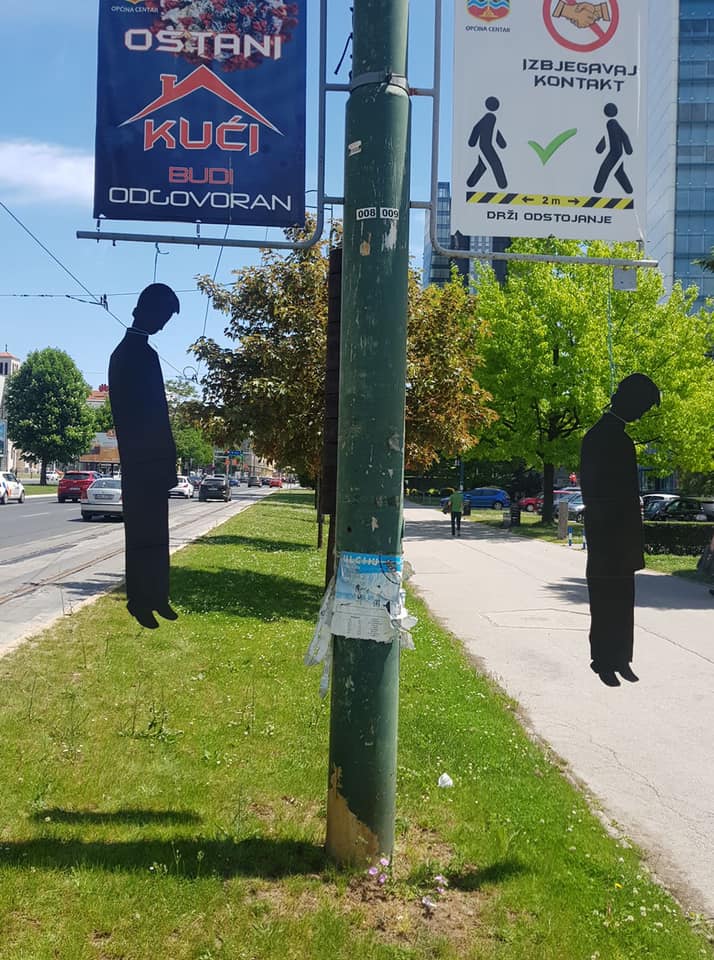Ahead of Mass for Bleiburg victims, NGO installation reminds of Ustasha crimes

Life-size cardboard people hung by their necks were on Wednesday dangling from trees and poles at Sarajevo’s Marijin Dvor neighbourhood, where the Croatian Nazi-allied regime hung 55 members of the resistance in 1945.
The installation was set up by an NGO called Anti-Dayton Movement and is a reaction to a controversial Holy Mass that will be held in the Sarajevo Sacred Heart Cathedral on Saturday for the victims of a massacre of Nazi supporters committed by Yugoslavia’s Partisans.
Many in Sarajevo were outraged when the Mass was announced as they perceived it as a promotion of fascism.
The NGO issued a statement saying that the Mass would be devoted to “those who were condemned by the whole world” and said that the installation was a way to oppose it.
The installation was not aimed against the Mass as a religious custom, “however, what distinguishes the Mass planned for May 16, 2020, is that it is held for the criminals and dedicated to fascists who have left only corpses behind,” the statement said.
The NGO reminded that in just one night ahead of the liberation of Sarajevo from fascists, 55 anti-fascists “who had previously been brutally tortured at the police station,” were hanged by the Ustasha regime.
The Mass has been condemned by the Jewish Community in Bosnia as well as by anti-fascist associations and artists. What contributed to the outrage in Sarajevo is that the Mass will be held at the Cathedral under the auspices of the parliament of neighbouring Croatia.
Amid a Yugoslav army offensive aimed at defeating pro-Nazi and anti-communist forces, tens of thousands of mostly pro-fascist Croat soldiers and their families fled in 1945 toward Austria to seek help from the British army, only to be turned back by the Brits right into the hands of anti-fascists.
In and around the Austrian town of Bleiburg, thousands of the so-called Ustashas were killed.
The Yugoslav forces saw the slaughter they committed as punishment for the tens of thousands of Jews, Serbs, Roma and anti-fascists killed by the Nazi-allied Croatian nationalists, called Ustasha, during WWII.
After the dissolution of Yugoslavia, Croatia began commemorating the Bleiburg victims with a large gathering near the Austrian town every year.
Croatian nationalists perceive the controversial annual event as a symbol of their suffering under communism.
Austrians, however, see it as a glorification of Nazism and have banned Ustasha flags and insignia at the gathering. The Catholic Church in Carinthia rejected last year a request from Croatia’s Bishops’ Conference to hold a Mass during the event, labelling it as a promotion of nationalist ideas.
The event in Bleiburg was cancelled this year due to the pandemic and the organisers of the event, the Honorary Bleiburg Platoon, said it will be held in different cities instead, among them in Sarajevo.
Kakvo je tvoje mišljenje o ovome?
Učestvuj u diskusiji ili pročitaj komentare





 Srbija
Srbija
 Hrvatska
Hrvatska
 Slovenija
Slovenija







